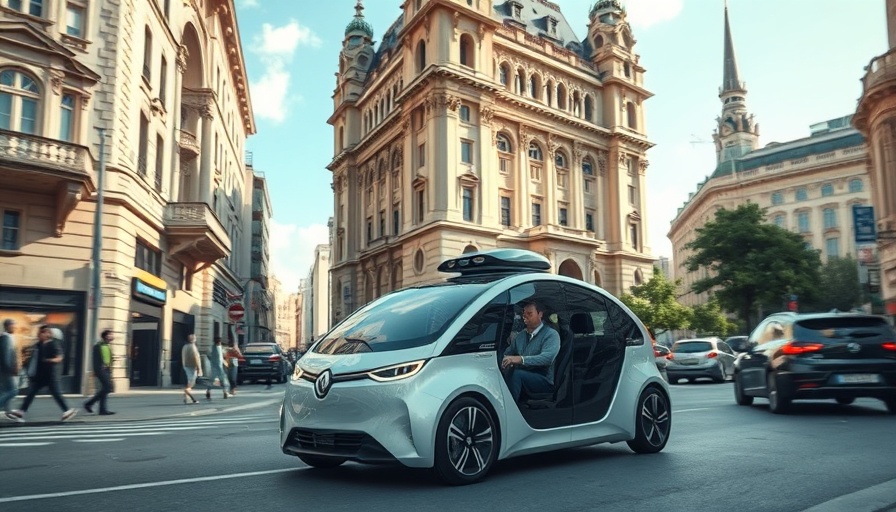
Waymo Expands into Philadelphia and NYC: A New Frontier for Robotaxis
Waymo, the self-driving car subsidiary of Alphabet, has just launched its first testing phase of autonomous robotaxis in two iconic Northeastern cities: Philadelphia and New York City. This bold move marks a significant advancement in the company’s quest to bring fully autonomous vehicles to urban landscapes beyond its established markets.
Understanding Waymo’s Approach to Urban Testing
The testing in these urban environments is not merely a promotional step; it's a carefully strategized process that involves mapping and collecting data from human-driven vehicles equipped with Waymo's advanced autonomous driving technology. By navigating through complex city terrains and diverse neighborhood dynamics, Waymo aims to refine its AI systems to tackle the unique challenges of urban driving.
Waymo’s chosen routes through Philadelphia will illustrate the company’s commitment to integrating its vehicle operations. From downtown to neighborhoods as diverse as University City and Eastwick, the robotaxis will traverse areas rich in both heritage and modern complexities.
The Journey So Far: Lessons from Other Markets
Waymo's ongoing projects in cities like San Francisco and Los Angeles offer a glimpse into how the company translates testing into potential commercial operations. For instance, Waymo's services have thrived in Santa Monica, where initial road trips transitioned into operational success. These precedents establish a roadmap for what may unfold in Philadelphia and New York, where the road regulations and urban environments are markedly different.
Challenges Ahead: Navigating NYC and Philly's Regulatory Landscape
Despite optimism surrounding these new trials, commercial launch is not immediate. Cities like New York and Philadelphia are known for strict regulations surrounding autonomous vehicle operations. Currently, New York's policies do not allow full autonomous driving without a licensed operator behind the wheel. Waymo has applied for testing permits, but approval processes can be slow and fraught with red tape.
In Philadelphia, Waymo's intention to place vehicles in heavily trafficked areas raises concerns about navigating city logistics while ensuring safety for both pedestrians and drivers. These challenges are pivotal as they will inform the adjustments in technology and strategy that Waymo must undertake moving forward.
Consumer Reaction and Industry Implications
The response from residents and city officials has generally been cautious, reflecting both excitement about technological innovation and concern about public safety and job displacement. As autonomous technology continues to evolve, the socio-economic implications will undoubtedly affect industries around transportation, delivery, and more, leading to debates about the future of work.
Looking Forward: What’s Next for Waymo?
Waymo's commitment to extensive testing in diverse geographies suggests a long-term vision. As the company learns from its data and adjusts its technology, it seeks to set a precedent in the autonomous vehicle market. With ongoing expansions into urban settings, there is potential for significant technological advancements, alongside heated discussions about policy, ethics, and urban mobility.
The potential success of Waymo’s operations could influence government perceptions of autonomous vehicles, leading to new policies and flexibility for tech companies. The company’s developments contribute not just to local economies but to the global narrative surrounding sustainable transport solutions.
Conclusion: The Road Ahead for Robotaxis
As Waymo continues its trail of innovation through Philadelphia and New York City, stakeholders including government officials, local communities, and tech enthusiasts are closely monitoring the outcomes. The implications of this testing will extend beyond these city borders, influencing similar initiatives worldwide.
Waymo’s journey reflects an increasing trend towards tech-driven urban mobility options that many cities might adopt. By following their progress, the public will gain insights into the future of transportation in our changing world. Stay tuned for further updates as Waymo navigates this new and exciting territory.
 Add Row
Add Row  Add
Add 



 Add Row
Add Row  Add
Add 

Write A Comment